
The full CEFR chart Language levels, Learn english, Language
Common European Framework of Reference for Language skills. Common European Framework of Reference (CEFR) self-assessment grids. UNDERSTANDING. Listening A1. I can recognise familiar words and very basic phrases concerning myself, my family and immediate concrete surroundings when people speak slowly and clearly..
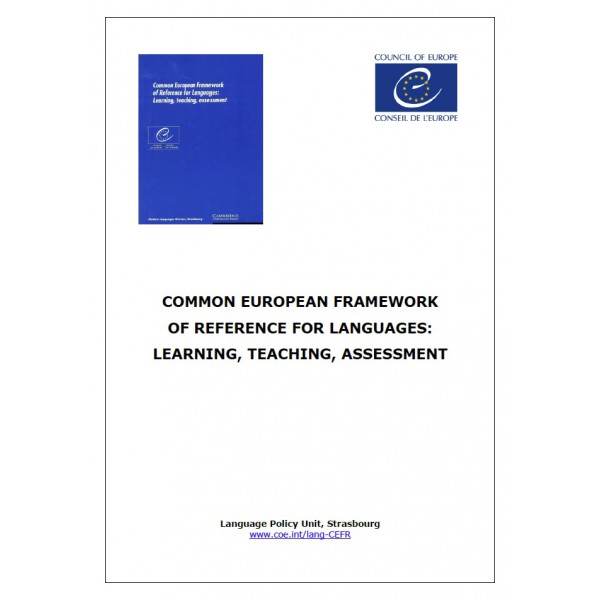
PDF Common European Framework of Reference for Languages Learning, Teaching and Assessment
Common European Framework of Reference for Languages (CEFR): Self-Assessment Grid A1 A2 B1 B2 C1 C2 Listening I can recognise familiar words and very basic phrases concerning myself, my family and immediate concrete surroundings when people speak slowly and clearly.

Cefire 2014. CLIL. 22 july 2014. Mr Alan Date Language proficiency . Acquisition strategies
forms of the written language, including abstract, structurally or linguistically complex texts such as manuals, specialised articles and literary works. S p e ak i n g Spoken interaction discussion in familiar contexts, I can interact in a simple way provided the other person is prepared to repeat or rephrase things at a slower rate of speech
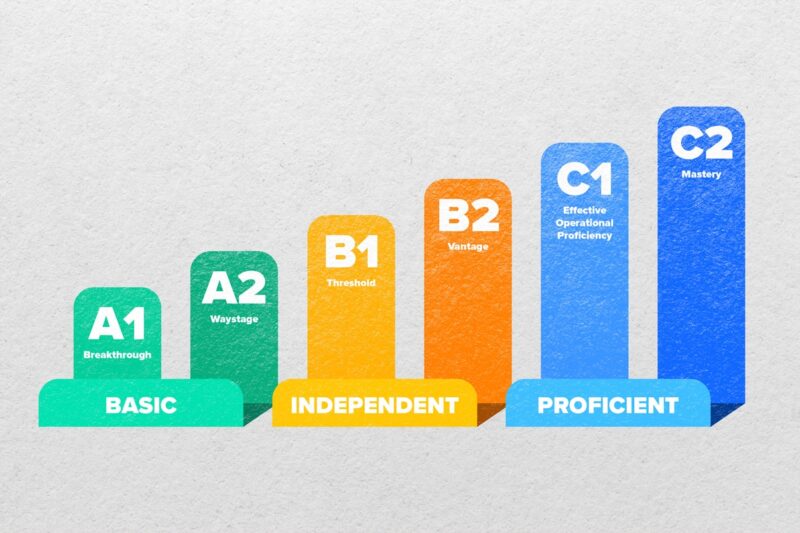
Common European Framework of Reference for Languages (CEFR) What It Is, the Levels, Placement
The self-assessment grid illustrates the levels of proficiency described in the Common European Framework of Reference for Languages (CEFR) and is an essential component of the ELP. It presents 34 scales of listening, reading, spoken interaction, spoken production and writing activities.
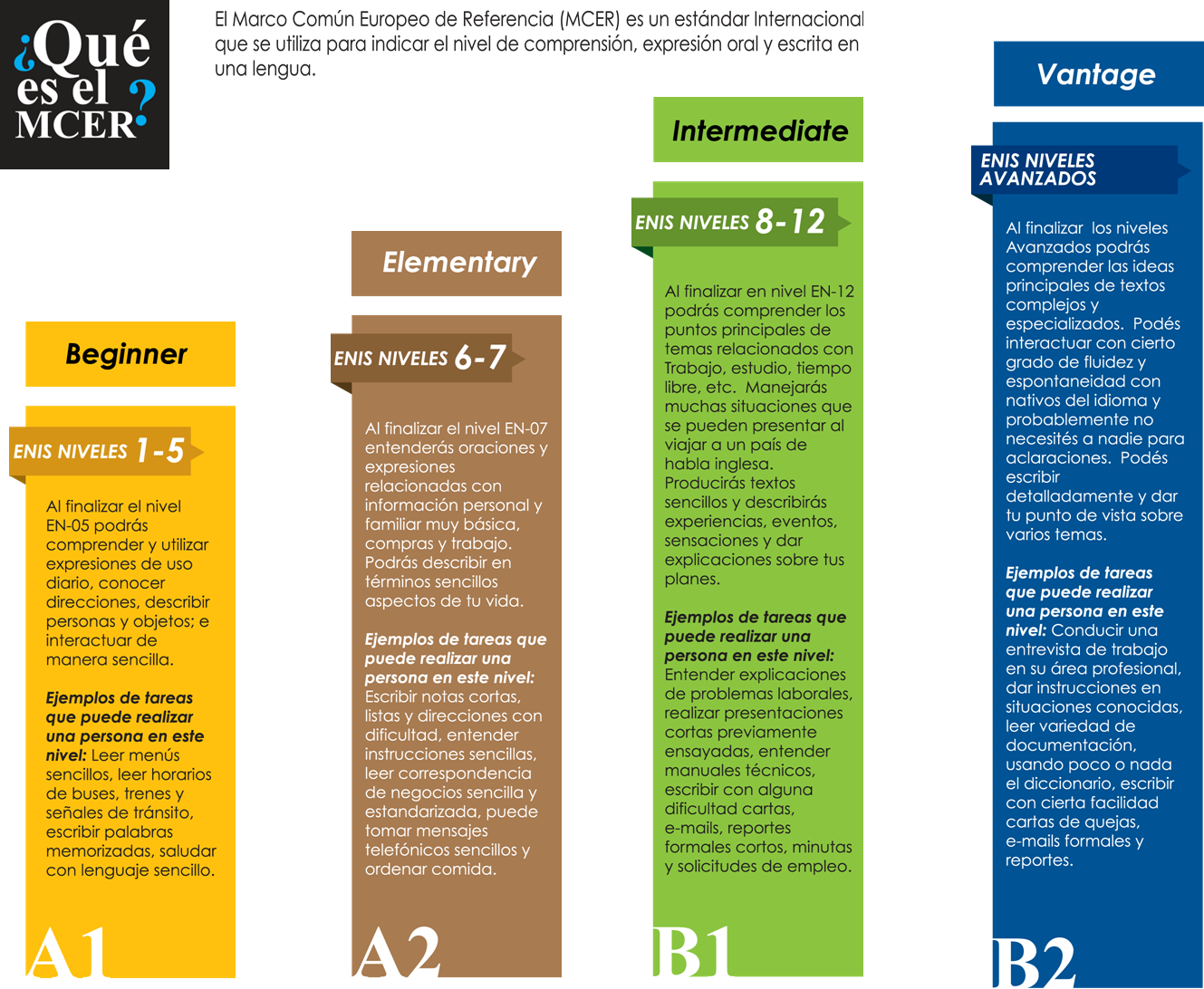
Common European Framework Of Reference For Languages Ielts Equivalent Gambaran
Self-assessment is carried out using checklists of "I can" descriptors arranged by language activity and common reference level (language biography) and summarized with reference to the CEFR's self-assessment grid (language passport). Complete text of the CEFR with hyperlinks; CEFR Companion Volume with new descriptors (2018)
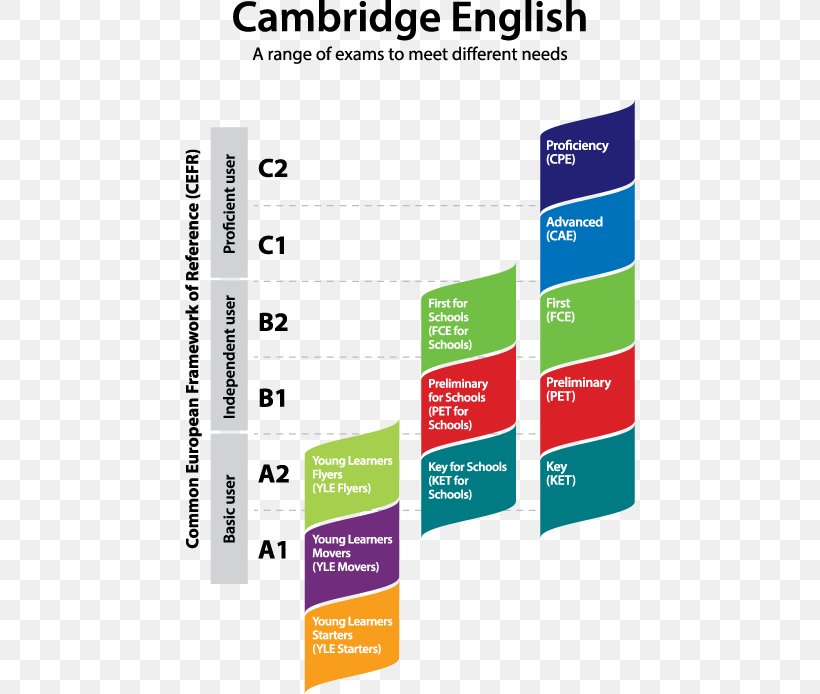
European Common Frame Of Reference For Languages
CEFR Common Reference Levels: self-assessment grid. explains how the Common European Framework of Reference for Languages (CEFR) is intended to serve the Council of Europe's aims;. Common European Framework of Reference for Languages (CEFR) and the development of language

cefr assessment grid
1 Common Reference Levels . 1.1 Global scale 5 1.2 Self-assessment grid 6 1.3 Qualitative aspects of spoken language use 7 . 2 Illustrative scales . 2.1 Communicative Activities: Reception Spoken Overall Listening Comprehension 8 . Understanding Interaction between Native Speakers. 8 Listening as a Member of a Live Audience 9

English Levels Common European Framework Of Reference
Common European Framework of Reference for Languages: learning, teaching, assessment 26 Table 2. Common Reference Levels: self-assessment grid A1 A2 B1 Listening I can recognise familiar I can understand phrases I can understand the main words and very basic and the highest frequency points of clear standard

(PDF) Student level diagnosis based on The Common European Framework of Reference for Languages
The Common European Framework of Reference for Languages: Learning, teaching, assessment (CEFR) is exactly what its title says it is: a framework of reference. It was designed to provide a transparent, coherent and comprehensive basis for the elaboration of language syllabuses and curriculum guidelines, the design of teaching and learning materials, and the assessment of foreign language.
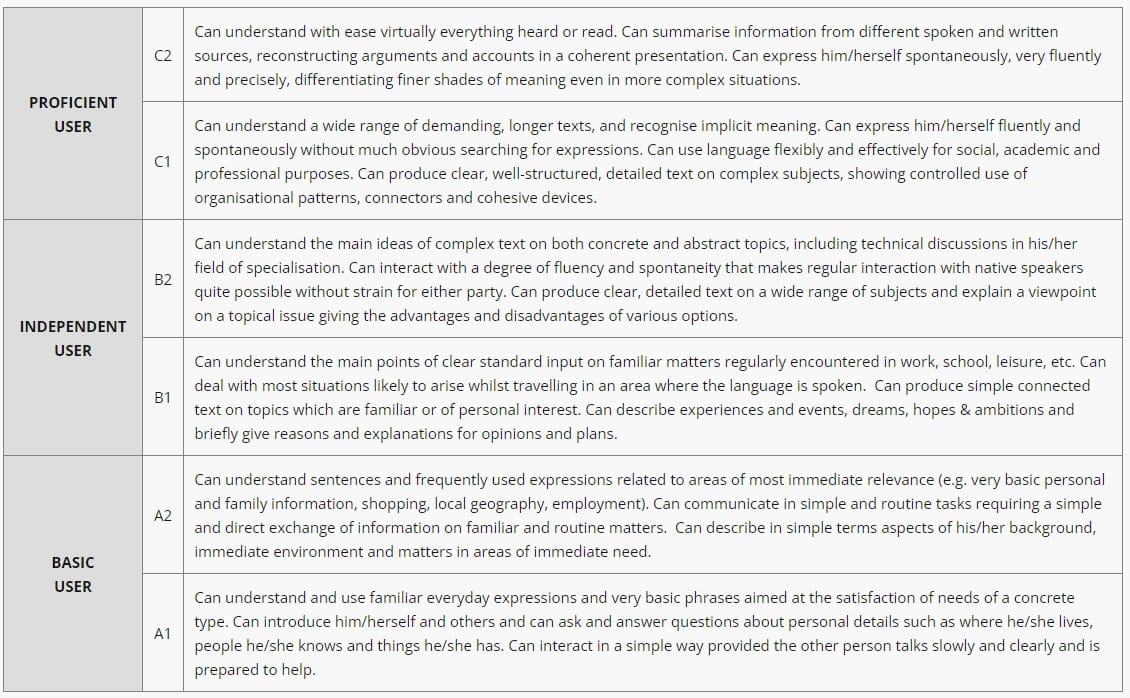
What Is Your Language Level? CEFR,ACTFL, HSK & JLPT
Central part in the European Language Portfolio take language skills which include listening, reading, spoken interaction, spoken production and writing. We offer you a simple self-assessment grid for language skills from the Council of Europe's Common European Framework of Reference for Languages. SELF-ASSESSMENT GRID
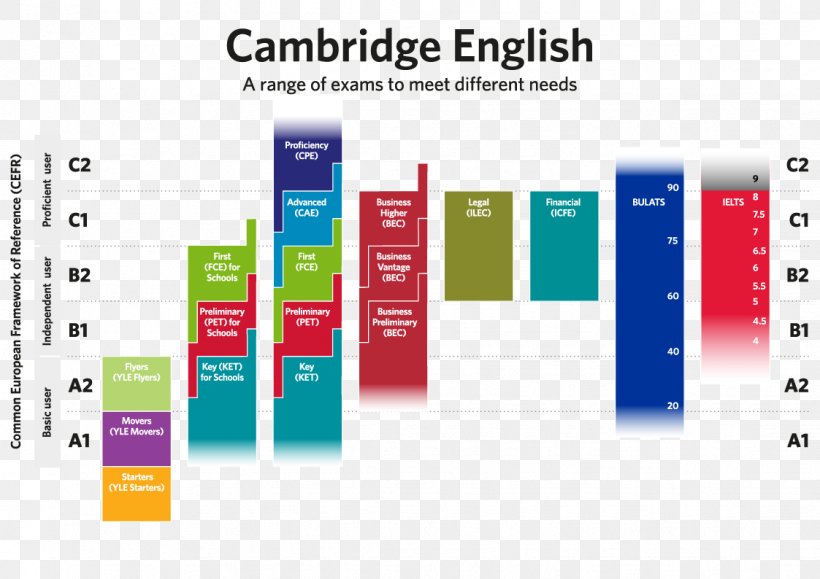
Common European Framework Of Reference For Languages Cambridge Assessment English C2 Proficiency
The self-assessment grid illustrates the levels of proficiency described in the Common European Framework of Reference for Languages (CEFR). It presents 34 scales of listening, reading, spoken interaction, spoken production and writing activities. The following official translations should be used.

Common European Framework of Reference for Languages SRIS Bishkek
The Common European Framework for Reference for Languages: Learning, teaching, assessment can be used to specify language learning goals and outcomes in an internationally comparable manner. Read more. The CEFR describes in a comprehensive manner: the competences necessary for communication, the related knowledge and skills and
In plain English THE COMMON EUROPEAN FRAMEWORK OF REFERENCE FOR LANGUAGES
The Common European Framework of Reference for Languages (CEFR) is a document prepared by the Council of Europe to describe the results of foreign language learners. The Framework provides a method of learning, teaching and assessment applicable to all European languages, with six reference levels used across the continent as a scale of linguistic competence.
ENGLISH LEVELS Common European Framework of Reference for Languages
CONTENTS . Prefatory Note . Notes for the user . Synopsis . Chapter 1: The Common European Framework in its political and educational context Chapter 2: Approach adopted Chapter 3: Common Reference Levels Chapter 4: Language use and the language user/learner Chapter 5: The user/learner's competences Chapter 6: Language learning and teaching

Common European Framework of Reference for Languages Learning, Teaching, assessment eBook by
1 2.4 Language assessment 19 3 Common Reference Levels 21 1 3.1 Criteria for descriptors for Common Reference Levels 21 1 3.2 The Common Reference Levels 22 1 3.3 Presentation of Common Reference Levels 23 1 3.4 Illustrative descriptors 25 1 3.5 Flexibility in a branching approach 31 1 3.6 Content coherence in Common Reference Levels 33
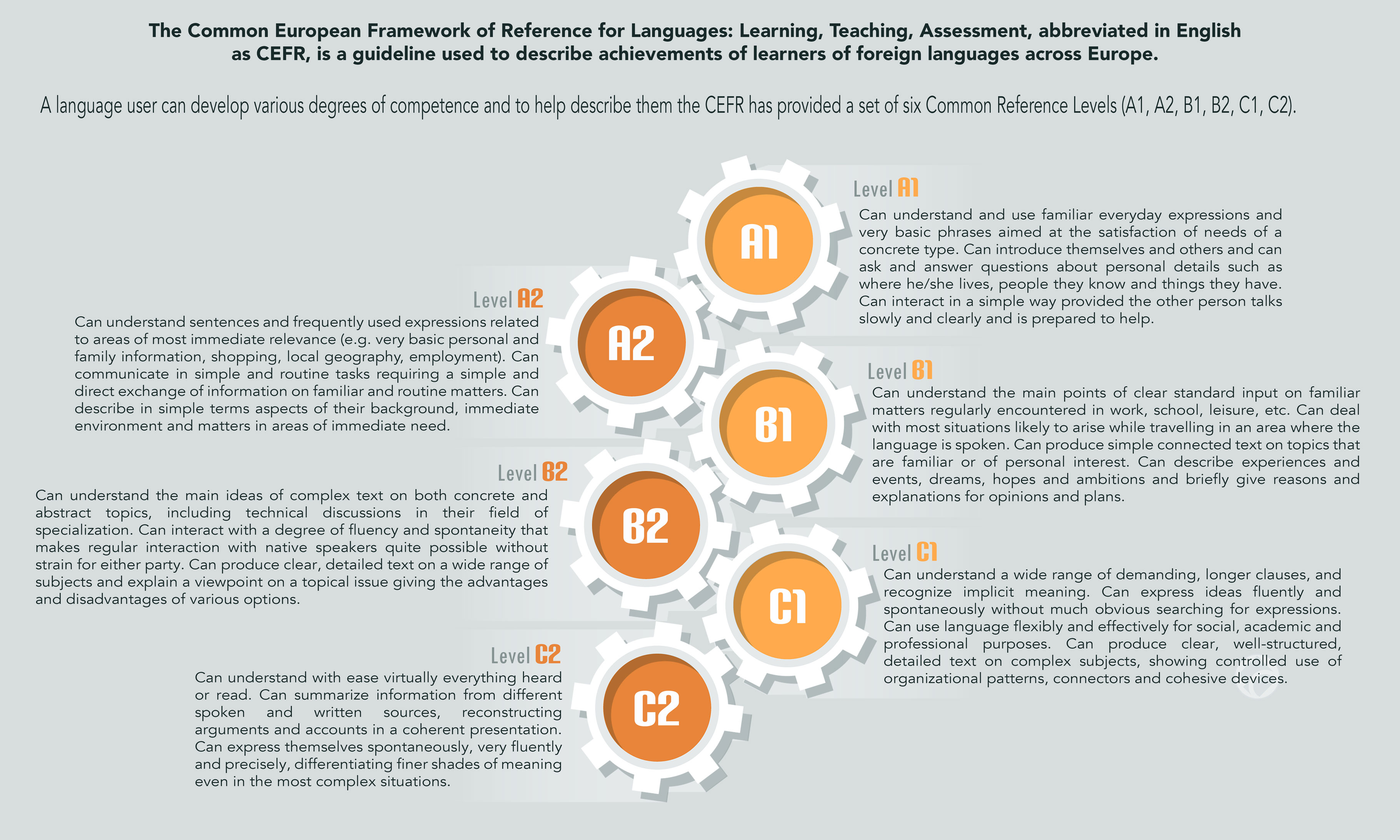
Common European Framework of Reference for Languages CEFR Language Consultants
The Framework is addressed to all professionals in the modern languages field and is intended to stimulate reflection on objectives and methods, to facilitate communication and to provide a common basis for curriculum development, the elaboration of syllabuses, examinations and qualifications, thus contributing to easier international.